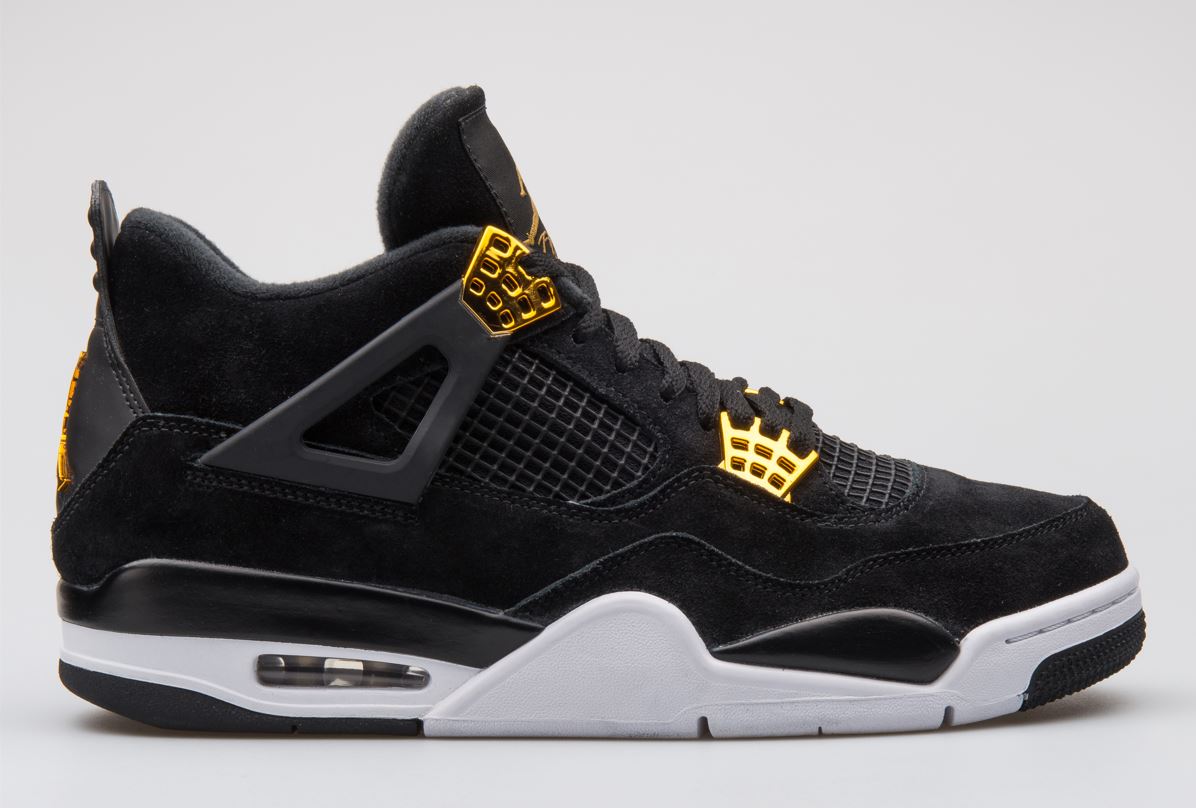When it comes to the world of athletic footwear, a puzzling question has emerged: are basketball shoes suitable for running activities? This dilemma has ignited discussions among fitness enthusiasts and casual athletes alike. With the distinct design and technology of basketball shoes aimed at supporting abrupt movements, sudden stops, and quick pivots on the court, doubts arise about their effectiveness on the open road or the jogging track.
As runners seek comfort, cushioning, and proper traction, the compatibility of these features with the structural demands of basketball shoes remains uncertain. To unravel this enigma, it’s essential to delve into the unique characteristics of both types of footwear and explore whether the traits that make basketball shoes ideal for hoops might translate to a positive running experience or if a specialized running shoe is the ultimate choice.
Is Running Possible in Basketball Shoes?

While playing basketball with running sneakers is indeed possible, their suitability for basketball is limited. It’s crucial to assess whether your chosen footwear optimally supports your performance on the court while ensuring your comfort and safety throughout the game. If you seek a practical approach to practicing both sports without the need for separate basketball and running shoes, considering a pair of versatile cross trainers could be a prudent option.
Considering various factors, basketball shoes can serve as a viable alternative to running shoes. Despite certain drawbacks relative to other footwear choices, they can still suffice for a casual run. It’s worth noting that employing basketball shoes for conventional cardio workouts might accelerate their wear and tear compared to exclusive use on hardwood surfaces. This aspect, coupled with the well-established advantages of dedicated running shoes for jogging, should factor into your decision-making process as you evaluate your footwear options.
How Does Running In Basketball Shoes Affect You?

When you decide to hit the track with your basketball shoes, be prepared for potential early fatigue – no pun intended – due to their added weight and the absence of the specialized forefoot and heel cushioning found in dedicated running footwear. The flatter sole design might exert additional pressure on specific areas of your feet, potentially leading to issues like plantar fasciitis, a painful condition affecting the underside of your foot.
It’s advisable to reserve your basketball shoes for shorter running distances. It’s important to note that their soles are optimized for superior traction on the hardwood surfaces of indoor courts, which means that running on concrete could expedite their wear and tear. Naturally, you wouldn’t want to compromise the longevity of your indoor basketball shoes by subjecting them to the rigors of outdoor hard surfaces.
Read more: Jordan shoe size chart in here
Basketball Shoes vs. Running Shoes

Have you ever noticed how basketball shoes and running shoes are not quite the same? It’s not just about the appearance – these shoes are made for different things. Whether you’re shooting hoops on the court or going for a jog, the right shoes can make a big difference. In this discussion, we’ll explore the key contrasts between basketball shoes and running shoes. By understanding their unique features and purposes, you’ll be better equipped to choose the right pair for your activity and make the most of your footwear.
| Aspect | Basketball Shoes | Running Shoes |
| Purpose | Designed for basketball with intense movements, direction changes, jumping, and stopping. | Designed for forward motion during running with cushioning and support. |
| Comfort | Provide ankle stability, shock absorption, and lateral movement support. | Focus on cushioning and shock absorption for comfort during repetitive strides. |
| Weight | Generally heavier and bulkier to support intense movements and provide ankle support. | Lighter to aid in long-distance running and reduce fatigue. |
| Traction | Designed for optimal traction on basketball courts to support quick direction changes. | Road running shoes offer shock absorption and traction on hard surfaces. |
| Terrain Support | Not suitable for off-road running due to limited traction on uneven or muddy trails. | Trail running shoes offer added traction for off-road running on trails. |
| Long-Distance Running | Not recommended due to bulkiness and added weight, causing increased fatigue. | Designed for comfort during long-distance running with shock absorption. |
| Injuries | Wearing basketball shoes for running may increase the risk of injury and fatigue. | Wearing running shoes for basketball may lead to lower traction and ankle injuries. |
Basketball Shoes and Running: Pros and Cons

Utilizing basketball shoes for running might appear practical when you possess a preexisting pair and aim to avert an additional purchase. Notwithstanding their primary design for basketball gameplay, these shoes can indeed serve a dual purpose in the realm of running.
Nonetheless, before embarking on your journey along the road or track, you must possess a thorough understanding of the merits and drawbacks associated with employing basketball shoes for running. Herein lie pivotal factors demanding your contemplation as you navigate the decision between running shoes and their basketball counterparts.
Pros
Discover the benefits of wearing basketball shoes for running. These specialized shoes offer unique advantages that can enhance your running experience. From improved ankle support to better traction on various surfaces, find out how basketball shoes can elevate your running game while keeping your feet comfortable and protected.
Exceptional Cushioning and Support
The undeniable allure of basketball shoes lies in their superior cushioning and support. Engineered to withstand the high-impact demands of the basketball court, these shoes offer excellent shock absorption, shielding your feet and ankles from potential injuries when landing from jumps or changing directions abruptly. For individuals struggling with ankle or knee discomfort, the added stability can provide a welcome relief, making your running sessions more manageable and comfortable.
Enhanced Traction and Grip
Running often takes you across a variety of terrains, from concrete pavements to grassy fields and uneven dirt trails. The last thing you want is to lose your footing and jeopardize your safety. Basketball shoes are designed with an emphasis on traction and grip, ensuring you maintain stability and confidence regardless of the surface beneath your feet. Sharp turns and sudden stops become less daunting, allowing you to run faster and with increased assurance.
Durability and Longevity
Basketball shoes are constructed from robust materials built to withstand rigorous wear and tear. Their resilience against water, dirt, and dust means you won’t have to constantly fret about keeping them pristine. Furthermore, if you exclusively reserve your basketball shoes for running, you’ll likely find they outlast running shoes due to their sturdier composition and ability to endure the stresses of running.
Cons
Running in basketball shoes may seem like a convenient choice, but it can bring some downsides. These shoes are designed mainly for quick movements on the court, which might not be the best fit for long-distance running. They can be heavier and lack proper cushioning for sustained runs, potentially leading to discomfort or even injuries. Let’s explore why using basketball shoes for running might not be the ideal option.
Weight and Bulkiness
Basketball shoes, owing to their more rigid materials, tend to be heavier and bulkier than their running counterparts. This added weight can lead to a sense of sluggishness and fatigue during extended running sessions or on harder surfaces. The decreased flexibility might also affect your running form and pace, potentially hindering your overall performance.
Insufficient Cushioning
While basketball shoes excel in absorbing impact from jumps, their cushioning may fall short of the repetitive pounding that accompanies running. Running involves a multitude of foot strikes per mile, which can contribute to strain on your lower extremities. Unlike running shoes, basketball shoes lack the ample cushioning required to mitigate this stress and can leave you more susceptible to injuries like plantar fasciitis, shin splints, and knee pain.
Arch Support Mismatch

Basketball shoes are designed with a higher arch to facilitate lateral movements and swift directional changes, which diverges from the natural rolling motion of the foot while running. The higher arch can disrupt your running biomechanics, potentially leading to overpronation or supination—excessive inward or outward rolling of the foot—triggering alignment problems and increasing the risk of injuries in your ankles, knees, hips, and back.
In Conclusion
In your quest to achieve your running goals, carefully consider the pros and cons of running in basketball shoes before making a decision. While basketball shoes offer exceptional support, traction, and durability, their weight, limited cushioning, and potential arch support mismatch could impede your running performance and overall comfort.
When aiming for a safe and enjoyable running experience, investing in a pair of dedicated running shoes tailored to your running style, foot shape, and intended terrain is highly recommended. These shoes are engineered to offer optimal cushioning, flexibility, breathability, and arch support, aligning with the unique demands of running and helping you stride confidently toward your fitness aspirations.
So, whether you’re going for a casual jog or trying to beat your personal best, choosing the appropriate footwear might make all the difference.
Find more: Nike shoe size chart in this post
FAQs
Can I wear basketball shoes for running?
Basketball shoes are specifically designed for the demands of basketball, which involve quick lateral movements, jumping, and sudden stops. While they might provide some cushioning and support, they are not optimized for the repetitive forward motion and impact absorption that running entails. As such, using basketball shoes for running could lead to discomfort, potential injuries, and quicker wear and tear on the shoes.
What are the key differences between basketball and running shoes?
Basketball shoes typically have more ankle support and stability features to accommodate the side-to-side movements in basketball. Running shoes, on the other hand, focus on providing cushioning, shock absorption, and support for the repetitive heel-to-toe motion of running. They also tend to be lighter and have different sole patterns optimized for forward motion.
Can I run short distances in basketball shoes?
Running short distances in basketball shoes might not cause immediate harm, but it’s not ideal. If you’re going for a quick jog or warm-up, it might be manageable. However, for regular or longer runs, it’s recommended to use proper running shoes to reduce the risk of discomfort and injury.
What problems could arise from running in basketball shoes?
Running in basketball shoes could lead to issues such as inadequate cushioning for impact, lack of proper arch support, and potential discomfort due to the different design focus. Over time, this could contribute to conditions like shin splints, plantar fasciitis, and general discomfort during running.
Are there any situations where basketball shoes can be used for running?
Basketball shoes might be suitable for very light cross-training or casual activities that involve short bursts of running. However, if running is a regular part of your exercise routine, investing in dedicated running shoes is highly recommended to ensure optimal comfort and minimize the risk of injury.
How do basketball shoes affect running gait?
Basketball shoes are designed to support lateral movements and quick changes in direction, which can interfere with the natural running gait. They often have thicker soles and a higher profile, altering the foot’s positioning during the stride. This alteration could lead to inefficient running mechanics and potential strain on the joints.
What are the potential injury risks of using basketball shoes for running?
Using basketball shoes for running could increase the risk of injuries such as ankle sprains, shin splints, Achilles tendonitis, and stress fractures. The shoes lack the necessary cushioning, shock absorption, and support that running shoes provide, making you more susceptible to these injuries over time.
Can running in basketball shoes lead to long-term discomfort?
Yes, running in basketball shoes could lead to long-term discomfort. The shoes’ design, cushioning, and support are not optimized for running. As a result, consistent use for running could lead to ongoing discomfort, pain, and potential foot or joint issues.
How do cushioning and support in basketball shoes differ from running shoes?
Cushioning and support in basketball shoes are often tailored for the impact of jumping and lateral movements. In contrast, running shoes prioritize cushioning for the repetitive heel-to-toe motion and focus on supporting the arches and promoting a natural gait. Using basketball shoes can result in improper cushioning and support for running, leading to discomfort and potential injury.
Are there specific foot types that might be more affected by using basketball shoes for running?
Individuals with flat feet or high arches may be particularly affected by using basketball shoes for running. Basketball shoes might not provide the necessary arch support or shock absorption required for these specific foot types during running, potentially exacerbating existing issues or causing new ones.
What should I consider when choosing shoes for running?
When choosing shoes for running, factors like cushioning, arch support, heel-to-toe drop, and overall comfort are crucial. Running shoes are designed with these considerations in mind, while basketball shoes lack the specialized features required for an efficient and comfortable running experience.

